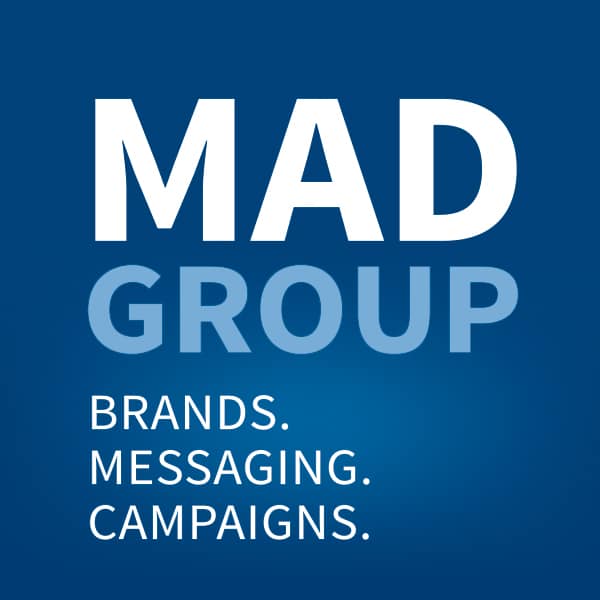Beyond Millennial Marketing: A Complete Guide to Marketing to Generation Z

As of this year, Generation Z makes up 40% of American consumers.
Gen Z has $44 billion in buying power on its own. When you factor in the influence that they have on what their parents purchase, that number is closer to $200 billion.
The oldest members of Generation Z are now joining the workforce. It’s time to start shifting our marketing strategies in ways that appeal to this unique generation.
How should you go about marketing to Generation Z? Are they basically the same as Millennials? Follow us and you will learn everything you need to know about marketing to Gen Z.
Who Is Generation Z?
There is no precisely agreed upon definition of where each generation starts and ends. Those born in the mid to late 1990s through the early 2010s are generally considered members of Gen Z. The children of Generation X or Millennials are Generation Z, and are considered to be digital natives.
Gen Z makes up today’s population of teenagers and early 20-somethings and are also called Post-Millennials, the Homeland Generation, and the iGeneration. Familiar with using several devices at once, 45% of Generation Z say they’re on their phone “almost constantly.” A whopping 98% of Gen Z members own a smartphone.
As the most diverse generation in American history, 48% of Gen Z are ethnic minorities. They are considered to be more progressive than previous generations and are known for having more fluid personal identities.
Marketing to Generation Z: What You Need to Know
An extremely important part to understand about marketing to Gen Z is this: authenticity is of utmost importance.
Gen Z is reluctant to be sold by traditional advertising techniques compared to older generations. The drive for authenticity in certain brands can be seen in all of these other Gen Z marketing tips.
1. Different Social Media Platforms Have Different Purposes
Gen Z has a different relationship with social media platforms, compared to the social media most used by the older generations. The different types of social media sites influence Gen Z’s social and consumer life.
Even though 34% of teens think Facebook is for old people, that doesn’t mean you shouldn’t be using Facebook in your marketing strategy. Gen Z tends to use Facebook as a source to glean information from, and Twitter is used to read the news.
Instagram, on the other hand, is where teens and young adults display their aspirational self. Snapchat is a place for sharing real life moments. It’s worth noting that 71% of Gen Z use Snapchat daily, and of those daily users, half use it at least 11 times a day.
Gen Z grew up with YouTube for most (if not all) of their conscious life, unlike older generations. When Gen Z is looking for shopping recommendations, YouTube is their platform of choice.
2. Keep It Short and Sweet
You probably already know that a crucial part of marketing in today’s world and boosting your SEO is creating video content. When targeting video content for Gen Z, however, it’s best to keep it short and sweet.
Those who predicted that the growth of the internet would shorten our attention span have proven themselves to be right. While Millennials have an attention span of a mere 12 seconds, the average attention span of Generation Z is shockingly only eight seconds long.
Therefore, if you manage to catch the attention of Gen Z, you better get your message across quickly. Even though 71% of the 13 to 17-year-olds watch videos online for more than three hours every day, they are less inclined to watch or read long form content.
3. Partner With Micro-Influencers
As a part of their tendency to appreciate authenticity, Gen Z is more likely to admire a YouTube or Instagram celebrity rather than a traditional celebrity. These internet personalities are seen as just regular people that Gen Z can relate to more easily than movie stars or famous musicians.
This is actually great news for marketing your business since internet influencers are more accessible than celebrities.
Micro-influencers are people who are considered experts in a specific niche and have online followings of between one thousand and one million people. Finding micro-influencers in your company’s niche to mention or promote your product can be an incredibly effective way to market to Gen Z. Typically, Gen Z influencers make around $300 per sponsored post, but lesser-known influencers might be willing to promote your product in exchange for a free sample.
4. What Does Your Brand Stand For? Can You Prove It?
It’s more important to Gen Z than other generations for brands to be socially and environmentally responsible. They want the brands that they identify with to take a stand on the issues that matter to them.
Being highly skeptical generation, Gen Z also wants you to be able to prove your dedication to the cause. What percentage of profits go to a specific charity? What environmentally sustainable production methods are you using to create your products? How conscious are you of your company’s effects on the environment, and what are you willing to do to mitigate those effects?
Gen Z wants to identify with brands that they see as making the world a better place. Not only that, but 93% of Gen Z say that an organization’s impact on society would influence their decision of whether or not to work for that organization. In fact, 30% even say they would be willing to take a 10 to 20% pay reduction to work for a company that shares the same social and environmental causes as them.
Generational Marketing: Use It to Your Advantage
The world is a quickly changing place, and it can feel frustrating to constantly be changing your marketing strategies. However, understanding generation marketing can make a huge difference in how your brand is seen by people of all ages. If you have a product you’re marketing to Generation Z, you’re not doing yourself any favors by trying to use the same tactics you would for Baby Boomers.
Did you love this article about marketing to Generation Z? Make sure to check out the rest of our advertising tips for more great information about all things marketing!
